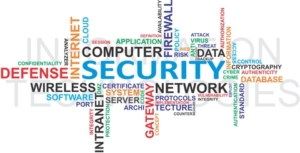

| Online: | |
| Visits: | |
| Stories: |

| Story Views | |
| Now: | |
| Last Hour: | |
| Last 24 Hours: | |
| Total: | |
Three Quarters of a Billion Records breached
http://robertsiciliano.com/
Last year, says the security firm Gemalto, over 700 million records were breached. Or, to put it another way, this translates to two million stolen or lost records every day.
 2015 Breach Level Report
2015 Breach Level Report
- 1,673 hacking incidents
- 398 were triggered from the inside of the attacked company: employees and even IT staff who were tricked (social engineering) by hackers into clicking on malicious links or attachments
- Government agencies suffered the greatest data leaks.
- Following that were nation states and healthcare enterprises (remember the big Anthem breach?)
Gemalto also says that the U.S. is the leading target of cyber attacks, with the UK, Canada and Australia following behind in that order. But don’t let Australia’s fourth place standing fool you. It reports only 42 publically reported incidents, while the U.S. has reportedly had 1,222.
How can you tell your computer has been compromised by an attack?
- Your computer is running slowly; you’re not simply being impatient—the device really is moving at a crawl. This is a possible sign the computer is infected.
- Another possible sign of infection: Programs open up without you making them, as though they have a mind of their own.
Protecting Your Computer
- First and foremost, businesses need to rigorously put their employees through training. This includes staged phishing attacks to see if any employees can be tricked into revealing sensitive company information. Training for workers must be ongoing, not just some annual seminar. A company could have the best security software and smartest IT staff, but all it takes is one less-than-mindful employee to let in the Trojan horse.
- If you receive an e-mail with a link or attachment, never rush to open them. Pause. Take a few breaths. Count to 10. No matter what the subject line says, there is always plenty of time to make sure an e-mail is from a legitimate sender before opening any attachments or clicking any links.
- Use firewall and anti-virus software and keep them updated.
- Use a virtual private network to scramble your online activities when you’re using public Wi-Fi so that cyber snoopers see only scrambling.
- Use the most recent version of your OS and browser.
- Regularly back up your data.
Robert Siciliano is an identity theft expert to BestIDTheftCompanys.com discussing identity theft prevention.
Robert Siciliano personal security and identity theft expert and speaker is the author of 99 Things You Wish You Knew Before Your Identity Was Stolen.
Source: http://robertsiciliano.com/blog/2016/04/20/three-quarters-of-a-billion-records-breached/


